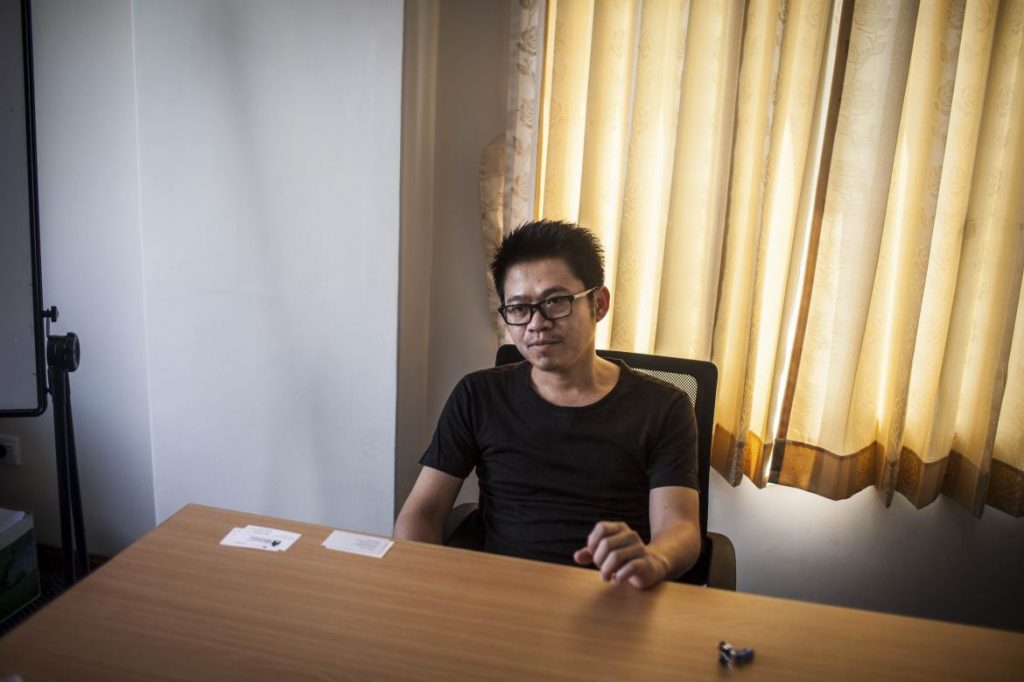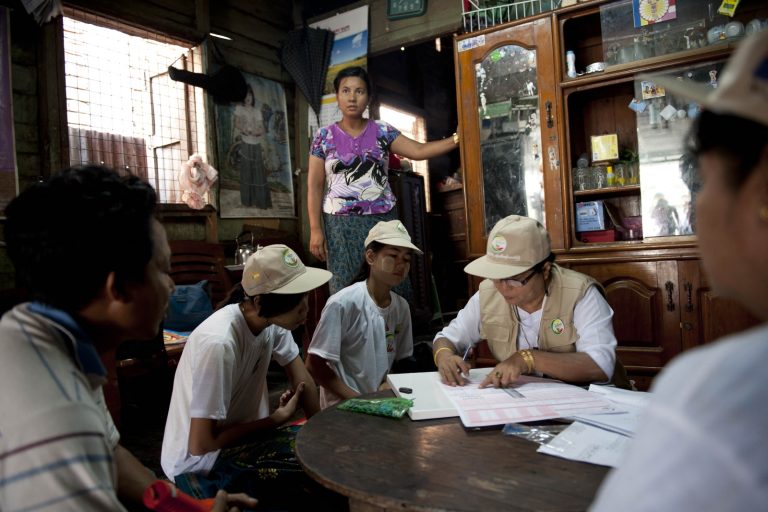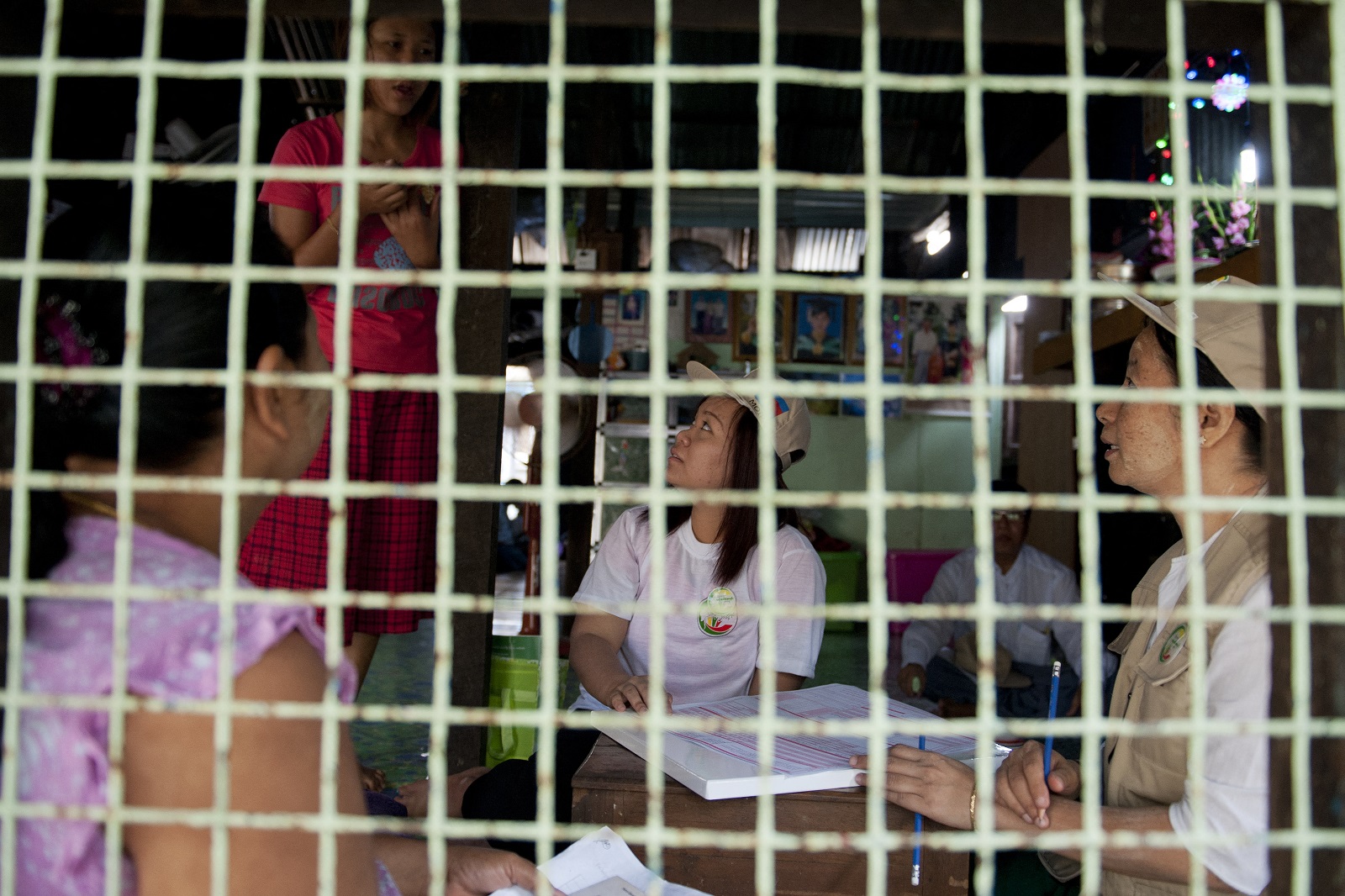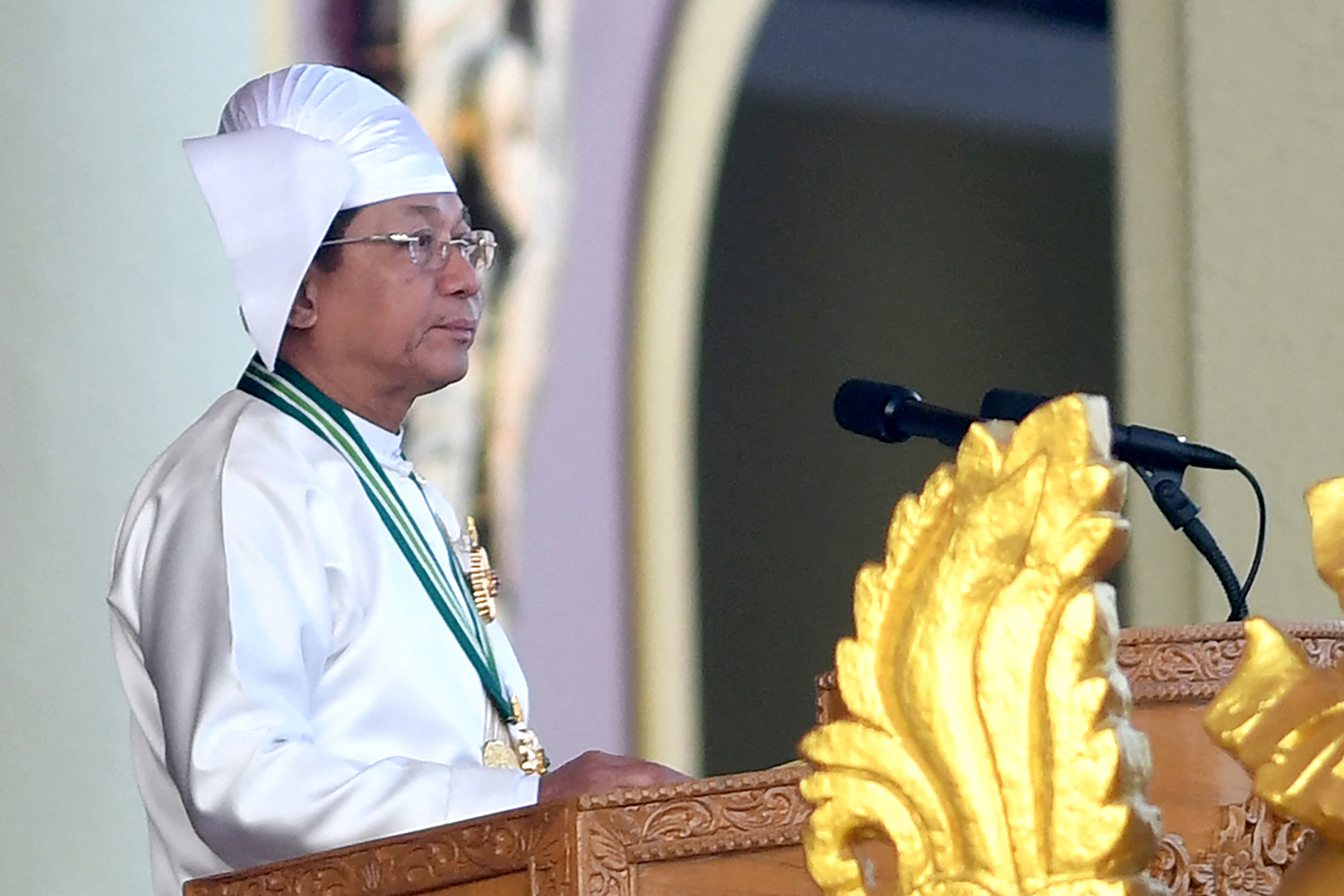It is less than a month to what many expect will be Myanmar’s most credible election in two decades, but doubts remain about the integrity of the preparations for the ballot and how free and fair the polls will prove to be. Frontier spoke with Ko Sai Ye Kyaw Swar Myint, executive director of the People’s Alliance for Credible Elections, an independent monitoring and advocacy organisation dedicated to helping ensure that the technical aspects of the election are fair and transparent.
Why was PACE formed?
Since the 2012 by-elections, we realised that even [under] the 2008 Constitution, the electoral process was important to focus on. PACE was formally formed in 2013, out of a coalition of three local partners. In 2014, we founded an independent organisation that was not affiliated with any particular party.
What does PACE do?
We have three main objectives. One is civic education, the second is election observation, and the third is research on electoral reform. But for 2015, we are only focusing on election observation. We have been observing the process from the beginning of the campaign period, which started on September 8, and deployed 110 observers to check voter list displays and 130 to observe campaigns. We are preparing to send 2,000 observers to monitor the election itself.
What kinds of irregularities are you expecting?
What hasn’t improved [in recent months] is trust. Trust between the parties and the Union Election Commission, trust between civil society and the Union Election Commission, public confidence in the electoral process, which I feel has been really bad in this situation. As an observer group, we don’t have concrete evidence of what problems are common and which are not common; for example, if the voter lists were intentionally riddled with errors by the UEC. But I don’t have any evidence yet [for this]. It might be a political problem, or it might be a technical problem. But everyone is talking about this like it is [surely] a political problem, and as a consequence, public confidence is deteriorating. Because of that perception, this may cause pre- and post- election instability.
Has the UEC been responsive to your suggestions for improving the process?
The UEC hast started to listen, but I don’t think they’ve really implemented [our suggestions]. When we look at the legal framework, we proposed legislation that would protect domestic election observers, and the UEC allowed it. I have to say this is the biggest improvement since 2010. We are legally entitled to observe the elections, but to fully implement that regulation, they need to change their mindset, I think. They look at election observers and say that we are trying to criticise. But the difference between party agents and election observers is that party agents care about the election results, but observer groups only focus on the process. But they see us as the same. That’s perhaps why sometimes, when we ask for information, they do not give it to us.
Support more independent journalism like this. Sign up to be a Frontier member.
On the Union level, it’s pretty transparent, and we have pretty good relations. But the lower-level commissions – on the state and region and township levels – we still have problems. They don’t really understand the process, and I’m not sure if they’ve read the regulations in many cases. One might assume this is political, that the UEC is intentionally starving the lower levels of information. But when we look at it the other way, it is an administrative issue. They need to improve their capacity to train their own staff and members of the commission.
Is it likely to be policies or personalities that most influences voters? How engaged are they in the process?
We conducted a survey in May; we tried to look at the electoral environment and how people understand elections and observation. We asked if people were interested in politics, and whether they intended to vote. The majority of respondents said they were not interested in politics, but most said they intended to vote in the 2015 elections. Personalities may very well be the driving force in influencing decisions: when we look at the media and Facebook, most are based on personality and moral ground – every party is like this – who is righteous and who is not.
This might not be unusal in a country like this at the beginning of a transition. The problem is that maybe after the elections people will have very high expectations of the new government, that they will have better education overnight, et cetera. These things will take time, however, and we need reform in every sector. While the desire of the people may be reflected in the outcome of the election, how the new government manages these lofty expectations will be the real question.
MPs will need to look at the overall system, but because of the electoral system, they will have to be accountable to their constituents, because the voters elected them. People are not voting for parties, necessarily, but individual candidates. They cannot focus just on their own candidacies but will need to work towards overhauling things on the national level.
Do you have any specific concerns about rural or ethnic minority areas?
Geography is a challenge, as is voter education, which are issues everywhere. These are the two major things. In urban areas, voter education programs are well underway, but if you go out into rural areas, you won’t see any activities there. I think these areas is where vote buying, intimidation, and influence will happen. The notion of election has been strange for us since 1990; people are still in doubt about the process. People are afraid that people will know who they voted for; they are afraid of going into the polling booths. I think this is a legitimate concern and a legitimate fear for them, living under such a repressive regime for more than five decades.
With voter education, we can tell people that voting is secure and secret. Even though polling officers can explain technical procedures easily, the underlying mentality surrounding elections has not changed. This is where vote buying comes into play: powerful people can sway people to vote one way because of these perceptions of the process.
The UEC attracted criticism over the updating of voter lists. Is there likely to be a lot of angry people on election day who were told they were not eligible to vote?
We have to prepare for that. At the moment, I believe the voter lists have lots of mistakes, but we do not have a proper analysis of what percentage of the total number of names that have mistakes. When we deployed our observers to check the lists, we found that not many people came to check. That makes us very worried. If their proper name does not appear on the list, they will not be able to vote – the regulations are very clear on that. If political parties are successful in mobilising voters, a lot of people will turn up on the day of the election, and there will be no mechanisms to target that issue. At the moment, we recommend that the UEC and political parties sit down together to solve this issue on election day. UEC chairman [U Tin Aye] recently made an off-the-cuff remark saying that even if people’s names were incorrect, they would be able to vote. But I think instead of responding to a journalist’s query, the UEC should provide proper instructions and a statement about that. It’s not good.
Why is the UEC so rigidly focused on the lists? Are they not an impediment to extending voter participation as broadly as possible?
I think these kinds of issues and practices originally come from the 2008 Constitution and the attendant regulations. Over the past five years, there have been problems with these practices, but parliamentarians have not had the will to deal with them. No single MP talked about changing regulations that made it difficult for voters to add their names to the list. The only thing they proposed was a proportional representation electoral system, which I think is really premature, as well as asking for a two-month-long campaign period. When you talk to the UEC, they say they are in accordance with the law. It’s true, but the political parties have to find a solution with the UEC, otherwise voters are going to be disappointed.
Is the UEC open to this?
I am sceptical of the competence of the institution. How common these kinds of irregularities are – we’ll see.
There will be no voting in some areas because of fighting. Are there legitimate reasons for stopping the vote in those areas?
We need to do something about the legal framework. The UEC has a right to cancel the elections in areas it decides are not suitable to have free and fair elections. But it would make the people more comfortable if they were to provide reasons for why they reached these decisions. To publicly lay out the criteria and rationales for their assessments, and to get into specifics. They need to be transparent. Otherwise, there will still be problems.
You said earlier that you were originally registered to vote in Bago. Was it easy to change your voter registration to Yangon?
There is one tricky thing in shifting the registration to another place. We need to prove that we have been living in the new constituency for at least 180 days. For example, my organisation, PACE, wrote a letter on my behalf saying that I am working here, and will be out of my previous constituency for more than six months, which should make me eligible to vote in Yangon. But the local election commission is still asking for my guest registration list, which normally people don’t have. That’s a tricky thing.
What’s your opinion about these barriers, such as having to provide guest registration information and the long residency requirement?
I think it should be easier. I really hope that after these elections we can improve the state of affairs. The majority of Yangon might very well be made up of people who moved from elsewhere for economic reasons, and we have a lot of people working abroad. They can only vote at embassies; there are no ballots by mail. People who are unable to go to the embassies are functionally disenfranchised. In the long term, we need to find something easier than this procedure. People have historically tried to avoid government offices – that in itself is a barrier. People don’t want to check their names against the list and go through these procedures to get their names on the list. This is difficult for them, I think.
Who are you voting for?
I’m not sure [laughs].







